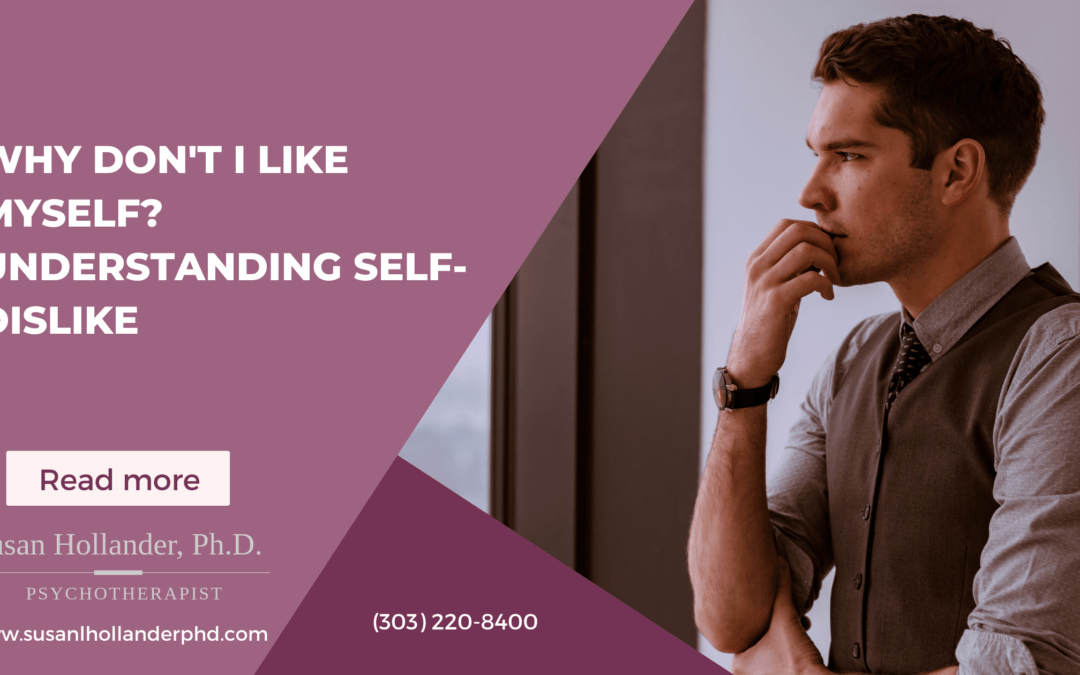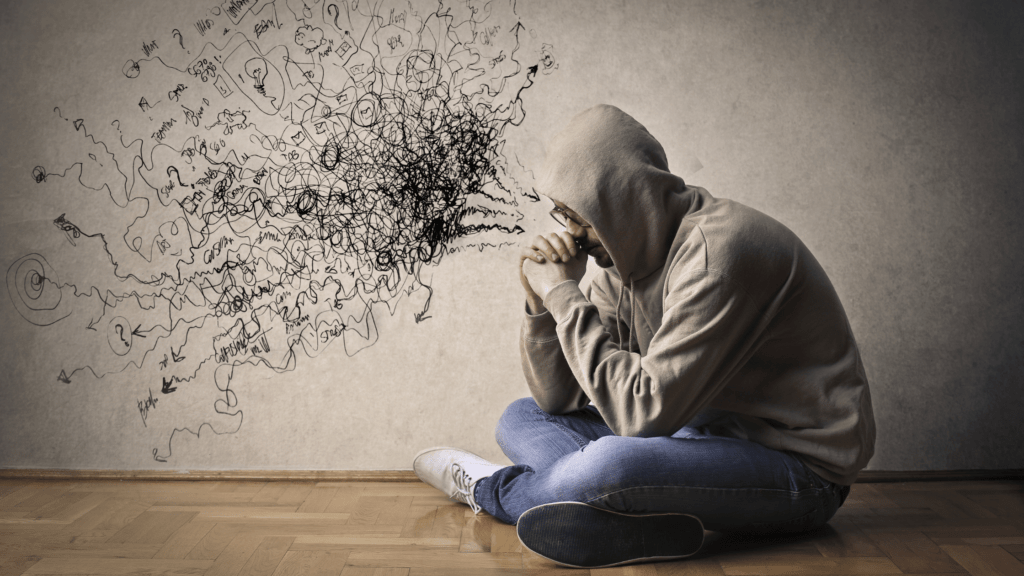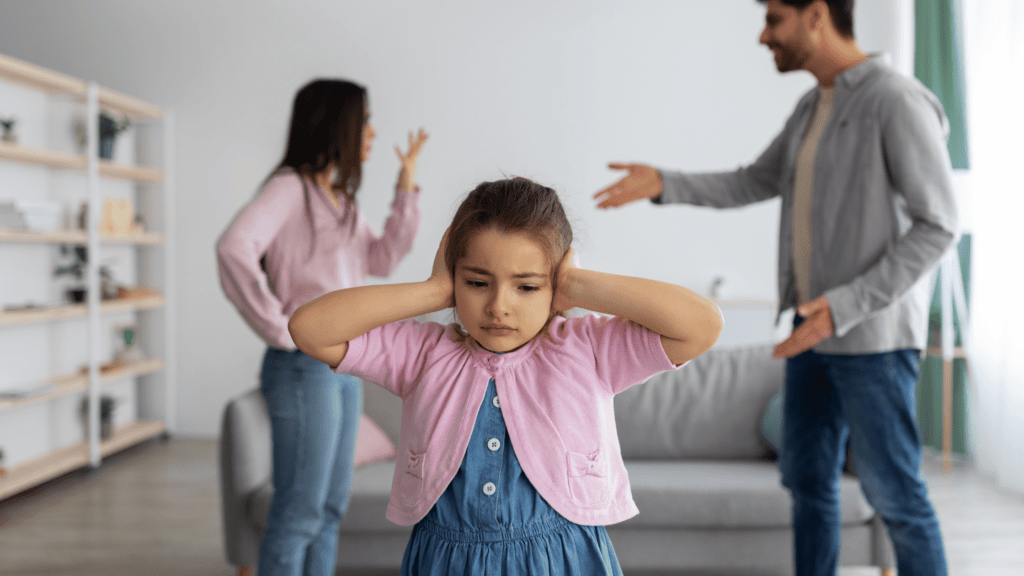If you ever find yourself asking, “Why don’t I like myself?” you are not alone. Many people experience these feelings, and understanding them is the first step toward change. Self-dislike often stems from deep-rooted factors such as negative self-talk, past experiences, unmet expectations, or mental health conditions like depression.
Recognizing the signs is essential. You may avoid social interactions, struggle to accept compliments, or engage in self-sabotaging behaviors without fully realizing why. These patterns can reinforce negative self-perceptions and make self-acceptance feel out of reach.
This article will explore the common reasons behind self-dislike, help you identify its signs, and provide practical steps to build a healthier self-image. You will learn how to shift negative self-talk, develop self-compassion, and recognize when professional help might be beneficial. With the right tools and mindset, you can take meaningful steps toward self-acceptance and personal growth.
What Does It Mean When I Don’t Like Myself?
When you don’t like yourself you feel dissatisfied or critical about who you are. This can show up as harsh self judgment, feelings of inadequacy, or self hate, manifesting as a general sense of not being “good enough”. These thoughts lead to emotional distress and can impact your daily life making it hard to find joy or satisfaction in your achievements and relationships.
Self-dislike is a more common issue than many realize, affecting people across all age groups. Research indicates that both adolescents and adults experience feelings of inadequacy, with certain groups being particularly vulnerable due to factors such as life transitions, social pressure, or mental health challenges. For instance, a study highlights that nearly 3 in 5 young adults (58%) report feeling a lack of “meaning or purpose” as they navigate the complexities of identity and peer comparison. Adults also encounter similar struggles, often driven by work-related stress or unmet personal goals. (Savage, M. J., James, R., & Milek, A. (2021).
Self perception or how we see ourselves starts in early childhood and evolves throughout our lives. Our experiences shape it, the feedback we get from others and the societal standards we feel we need to meet. Over time if these influences are mostly negative they can distort our self image and we focus more on our perceived flaws than our strengths. Knowing these patterns is the key to understanding why you don’t like yourself and how to build a healthier more compassionate self view.
Why Don’t I Like Myself & Self Hatred
Negative Self Talk
Negative self talk refers to the inner dialogue where you constantly criticize or belittle yourself. This destructive pattern can damage your self perception, leading to self loathing and making you feel unworthy or incapable. Common examples of negative thoughts are “I’m a failure”, “I can’t do anything right” or “No one likes me”. These thoughts repeated over time become ingrained and you start to believe these harsh judgements are true, even when they clearly are not valid.
Research shows negative self talk is linked to mental health conditions like depression and anxiety. A study published in the Journal of Behavior Therapy and Experimental Psychiatry found that people who engage in negative self talk frequently are more likely to have low self esteem and depressive symptoms. This constant barrage of negativity erodes your self worth and reinforces self hatred making it hard to see your positive qualities.
Childhood Experiences
Your early life experiences shape your self worth. Childhood is when we first start forming ideas about who we are, often based on how parents, teachers and peers treat us. If these experiences were marked by criticism, neglect or trauma they can leave deep scars on your self esteem.
For example a child who grows up with overly critical parents may internalise those criticisms and believe they are never good enough. Over time this belief can become a persistent self dislike and self blame. Case studies have shown that individuals who experienced significant childhood trauma (abuse or prolonged neglect) are more likely to struggle with low self esteem and self hatred in adulthood. A study by the National Institute of Mental Health found that early adverse experiences are strongly linked to negative self perception and mental health issues later in life.
Unmet Expectations
Setting unrealistic expectations for yourself can be a big source of self dislike. When you push yourself to be perfect or meet impossible standards failure is almost guaranteed. This can lead to feelings of inadequacy and self criticism especially when societal pressure is involved.
Societal expectations set benchmarks for success, owning a home by a certain age, achieving a certain career milestone or having a certain body image. Statistics from the American Psychological Association show that societal pressure contributes significantly to stress and negative self perception especially in younger adults. For example the pressure to have a thriving career by your late 20s or early 30s can be immense and when unmet leads to harsh self judgement.
Social Comparison
Comparing yourself to others is a natural human habit but it can quickly become toxic. When you measure your worth against others especially in areas like appearance, achievements or social status it often leads to self dislike. This is especially prevalent in the age of social media where people present idealised versions of their lives.
Studies have shown social media can exacerbate feelings of inadequacy and low self esteem. For example research published in Computers in Human Behavior found that people who spend more time on social media are more likely to compare themselves to others and have negative self perception. Recognise when comparison becomes unhealthy. If you find your self worth is heavily influenced by how you stack up against others it may be time to reevaluate how you engage with these comparisons.
Mental Health Conditions
Mental health conditions like depression and anxiety are often the root of self dislike not just a symptom. These conditions can distort your thinking making it hard to see yourself in a positive light. Depression brings feelings of worthlessness and excessive guilt, anxiety makes you overthink your flaws.
Diagnostic criteria for these conditions often include negative self perception as a core symptom. For example according to the Diagnostic and Statistical Manual of Mental Disorders (DSM-5) major depressive disorder includes persistent feelings of sadness, worthlessness and guilt all of which contribute to self hatred. Knowing these feelings are part of a bigger mental health issue can help you approach them with more compassion and seek treatment.
You May Not Like Yourself If…
Avoiding Social Interaction
Avoiding social interaction is a clear sign of low self worth. When you don’t like yourself you will withdraw from social situations fearing judgement or rejection. This avoidance is because you believe others will see the same flaws you fixate on. Over time this can lead to loneliness and reinforce the negative feelings you have about yourself.
For example someone with low self esteem might constantly decline social invitations or avoid initiating contact with friends believing they are not interesting or worthy of attention. Research shows social withdrawal is closely linked to self esteem issues creating a cycle where the less you engage with others the more isolated and self critical you become. This isolation further damages your self worth making it harder to break the cycle.
Self Sabotage
Self sabotage refers to the behaviors or actions that undermine your success or well being often unconsciously. It can manifest in many ways such as procrastination, avoiding opportunities or engaging in harmful habits. These behaviors usually come from deep rooted feelings of unworthiness or fear of failure.
For example you might avoid applying for a promotion at work because deep down you believe you don’t deserve it. Or you might procrastinate on important tasks because you tell yourself you won’t succeed anyway. Case studies have shown self sabotage is often a manifestation of underlying self dislike where people unconsciously act in ways that confirm their negative self beliefs.
Can’t Accept Compliments
It may be a sign of low self esteem if you can’t accept compliments. Hearing positive feedback feels uncomfortable or even impossible when you don’t like yourself. You might dismiss or downplay compliments thinking the person giving them is just being polite or doesn’t see the real you.
Research indicates a strong link between low self-esteem and the rejection of compliments. A study published in the Journal of Personality and Social Psychology found that 64% of individuals with low self-esteem tend to distrust or reject positive feedback because it contradicts their negative self-perception. This inability to accept compliments often reinforces feelings of worthlessness and self-doubt.
Persistent Guilt or Shame
Experiencing persistent guilt or shame is another sign of deeper self-esteem issues. While everyone feels guilt or shame occasionally, those who don’t like themselves feel it excessively or for longer periods. This might be guilt over minor past mistakes or shame over parts of yourself that are beyond your control.
Chronic guilt and shame can have a profound psychological impact, often leading to a negative self-view that erodes self-worth. Research indicates that individuals who experience chronic guilt are significantly more likely to struggle with low self-esteem and depression. A study found that 37.4% of adults with major depression also experienced intense feelings of guilt, compared to just 8.1% of those without depression. This correlation highlights how entrenched feelings of guilt can perpetuate a cycle of self-criticism and self-dislike, making it challenging to feel deserving of happiness or success(SpringerLink, PubMed).
How to Like Yourself
Challenge Negative Self-Talk
One of the first steps to liking yourself more is to challenge negative self talk. Start by identifying the negative thoughts that run through your mind – these are often automatic and harsh. Common examples are thoughts like “I’m not good enough” or “I always mess things up”. Once you become aware of these thoughts you can challenge their validity.
Cognitive Behavioural Therapy (CBT) has techniques for this. CBT encourages you to question the evidence behind your negative thoughts and consider alternative more balanced perspectives. For example instead of thinking “I always fail” you might reframe it to “I’ve had setbacks but I’ve also succeeded in many areas”. CBT worksheets can help you with this process by providing a structured way to record and analyse your thoughts. Over time this can reduce the power of negative self talk and help you build a more positive self image.
Practice Self Compassion
Self love and self compassion mean treating yourself with the same kindness and understanding you would offer a close friend. Instead of being your harshest critic, self compassion encourages you to be gentle with yourself, especially in difficult times. This is key to improving self perception as it allows you to accept your imperfections without judgement.
There are several exercises to cultivate self compassion. One is the “Self Compassion Break” where you acknowledge your suffering, remind yourself that suffering is a normal human experience and then offer yourself kindness. Another is to write a compassionate letter to yourself focusing on understanding and forgiveness for any perceived shortcomings. Research published in the Journal of Clinical Psychology has shown that self compassion practices can reduce anxiety and depression and lead to a healthier more balanced self view.
Set Realistic Goals
Setting realistic goals is another way to improve self esteem. Unrealistic goals lead to feelings of failure and inadequacy while achievable goals give you a sense of accomplishment and build confidence over time. Start by setting small, manageable goals that align with your values and interests. For example instead of trying to change your whole life in a week you might set a goal to walk for 15 minutes a day or try one new thing a week.
As you achieve these small goals your confidence grows and you build a positive self image. This process of setting and achieving goals can help you build momentum towards bigger goals. Research shows that goal setting can increase self esteem as it provides clear markers of progress and personal growth.
Surround Yourself with Supportive People
The people you surround yourself with greatly impact how you see yourself. Supportive friends, family and mentors can offer encouragement, remind you of your strengths and help you see yourself in a more positive light. Negative or critical people can reinforce self doubt and self criticism.
Research shows that a strong support network is linked to better mental health. For example, research published in Social Science & Medicine shows that people with strong social support are less likely to experience depression and anxiety. Building relationships with people who care about your well-being can create an environment where you feel valued and accepted and help you see yourself more positively.
Do What You Love
Doing what you love is another way to reinforce a positive self image. When you do something that brings you joy or satisfaction it helps shift your focus from your perceived flaws to your strengths and interests. These activities can also give you a sense of accomplishment and boost your mood both of which contribute to better self esteem.
Research has shown that engaging in hobbies can indeed lead to improvements in mood and overall well-being. For example, studies have found that activities like creative hobbies can reduce stress levels and promote a sense of flourishing, as reported in The Journal of Positive Psychology. Additionally, other studies have documented the mental health benefits of leisure activities, including lower stress levels and increased life satisfaction, which align with your statement (Utah State University Extension, SpringerLink).
Explore the Underlying Issues in Therapy
Sometimes self dislike is rooted in deeper issues that need professional help to uncover and address. If you find your negative feelings about yourself are persistent and overwhelming then therapy may be necessary. Therapy provides a safe space to explore the underlying causes of yourself dislike such as past traumas, deep seated beliefs or unresolved emotional pain. This can include trauma from experiences such as sexual abuse or physical or psychological abuse.
There are several types of therapy that can effectively address self-esteem issues. Cognitive Behavioral Therapy (CBT), for example, focuses on identifying and changing negative thought patterns, while psychodynamic therapy delves into unconscious influences from the past that shape your current self-perception. Through therapy, you can gain valuable insights into the underlying causes of self-criticism and learn healthier ways to think and feel about yourself. A study published in The American Journal of Psychiatry has demonstrated that therapy significantly improves self-esteem, especially when combined with other self-help strategies (Bohus et al., 2004).
When to Get Help
Knowing When Self Dislike Becomes Debilitating
While it’s normal to have occasional self doubt it’s important to know when those feelings become debilitating and need professional help. If your self dislike is persistent, overwhelming and interfering with your daily life then it may be beyond what self help can address. Signs that you need professional help include intense feelings of worthlessness, frequent thoughts of self harm or inability to function normally in work, school or social situations. Or if you find yourself stuck in a cycle of negative thinking despite trying various self help strategies then seeking help is the next step towards healing.
Types of Therapy for Self Esteem Issues
There are several types of therapy for self esteem issues each suited to different needs and preferences. Cognitive Behavioural Therapy (CBT) is one of the most common and effective. It works on identifying and changing negative thought patterns that contribute to self dislike. In CBT you will work with a therapist to challenge those thoughts and develop healthier more balanced ways of thinking.
Another option is Dialectical Behaviour Therapy (DBT) which is particularly helpful for those who struggle with intense emotions and self destructive behaviours. DBT combines cognitive behavioural techniques with mindfulness practices to help you regulate your emotions, improve relationships and build self respect. It’s especially helpful for those who find themselves overwhelmed by feelings of shame or guilt that often accompany low self esteem.
Other types of therapy such as psychodynamic therapy explore the unconscious factors that affect your self view and give you insight into the deeper roots of your self esteem issues.
In self esteem therapy sessions you will do reflective exercises, talk about your feelings and experiences in depth and gradually work towards building a more positive and realistic self image. These sessions provide a safe space to explore the underlying causes of your self dislike and develop practical strategies for change.
Finding the Right Therapist
Finding the right therapist is a big part of your journey to self acceptance. Start by looking for a therapist who specializes in self esteem issues or related areas like depression, anxiety or trauma. It’s important to choose someone you feel comfortable with and understood as the therapeutic relationship is a big part of the treatment.
When choosing a therapist ask:
- What experience do you have with treating self esteem and depression issues?
- What therapy do you use and how does it work?
- What should I expect in our sessions?
These questions can help you determine if a therapist’s approach and style suits you. Many therapists offer a brief initial consultation either in person or over the phone which can give you a better idea if they are right for you.
Getting Started with Self Acceptance
Self dislike is a complex issue with many causes including negative self talk, childhood experiences, unmet expectations, social comparison and underlying mental health conditions. But by recognising those patterns, challenging negative thoughts, practicing self compassion, setting realistic goals, surrounding yourself with supportive people and doing things you enjoy you can start to build a healthier self image. Therapy can be a valuable resource for those whose self dislike is deep seated or debilitating, it can offer professional guidance and tailored strategies for change.
Getting help should never be seen as a weakness but a strength and self awareness. If your self dislike is too much to manage on your own then reaching out for professional help can be a big step towards reclaiming your self worth. Remember self acceptance is a journey and getting help along the way is okay. These first steps are good for your mental and emotional well being. It will improve your overall life and set you up for a future where you can actually like and value yourself.
If you are depressed and can’t manage it on your own, professional help can make a big difference. Don’t wait to get started. Get in touch today to book a consultation with a qualified therapist who will support you through this process with the care and professionalism you deserve. Your life is worth it. Get in touch now.







Recent Comments